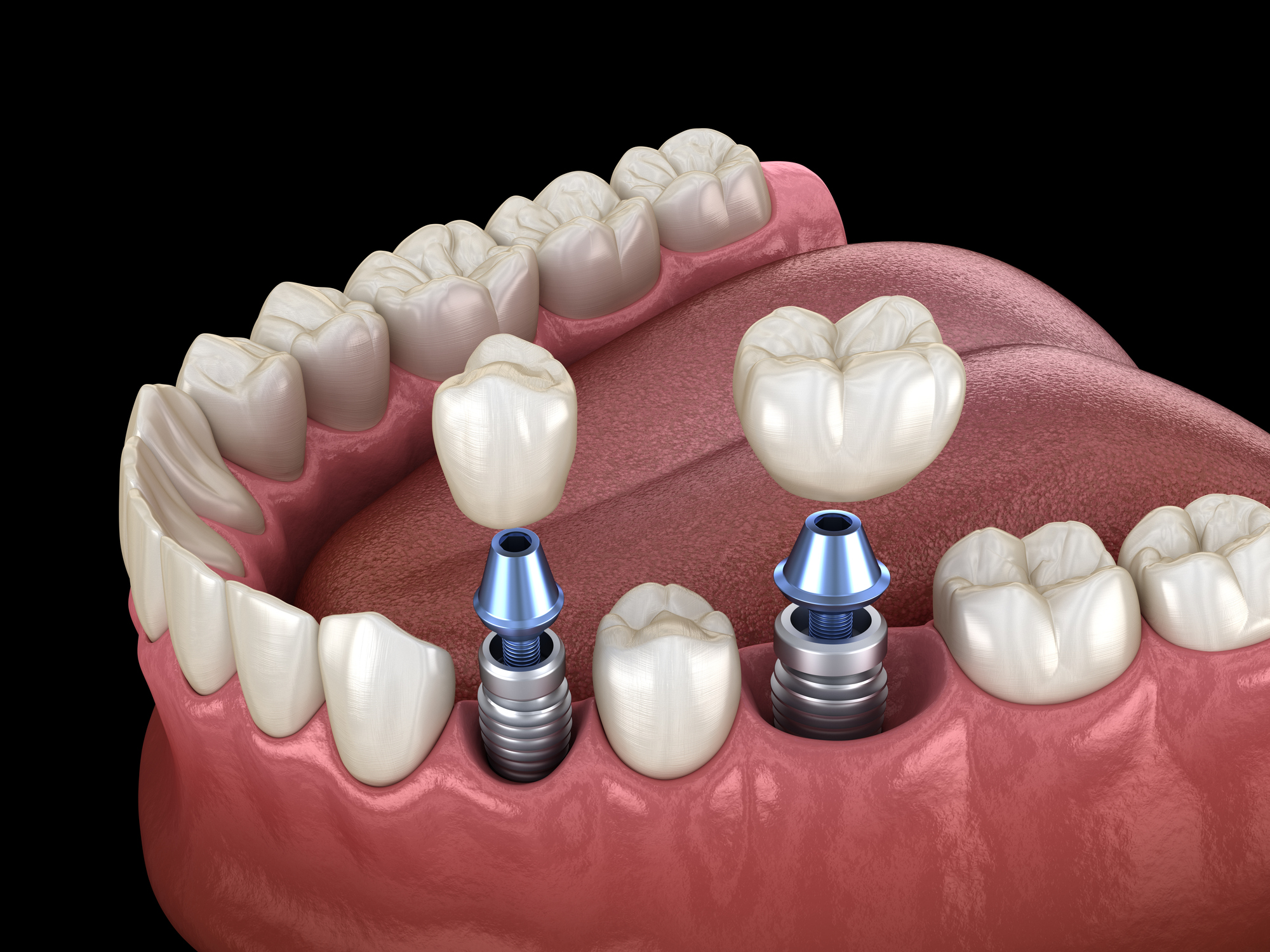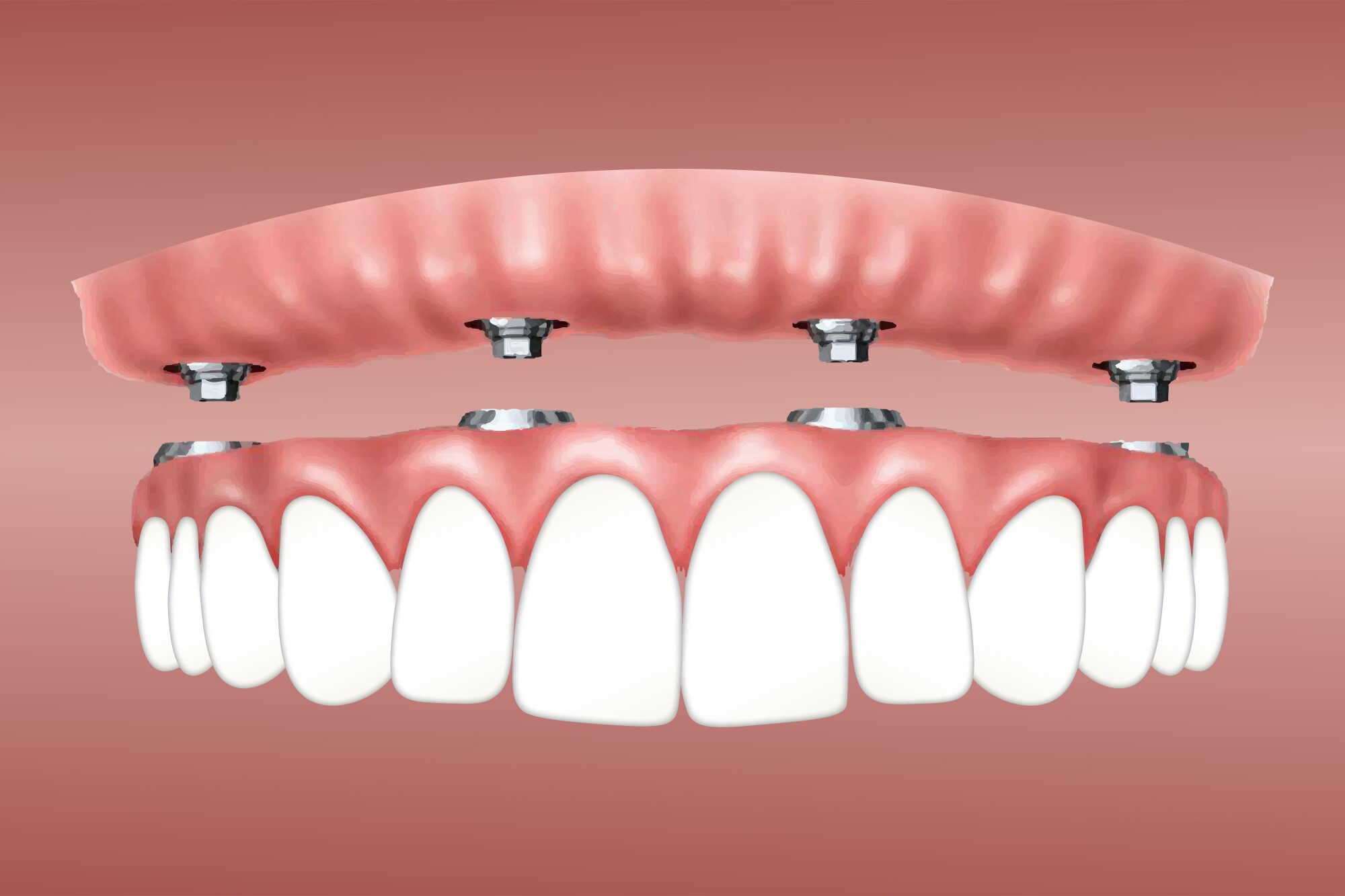The Main Principles Of Dental Sense
Table of ContentsHow Dental Sense can Save You Time, Stress, and Money.Facts About Dental Sense UncoveredWhat Does Dental Sense Mean?The Greatest Guide To Dental Sense
are medical gadgets operatively dental implanted into the jaw to recover an individual's ability to chew or their appearance. They provide assistance for artificial (phony) teeth, such as crowns, bridges, or dentures. When a tooth is shed because of injury or disease, a person can experience difficulties such as rapid bone loss, malfunctioning speech, or changes to chewing patterns that result in discomfort.Dental implant systems include a dental implant body and dental implant abutment and may additionally consist of an abutment addiction screw. Front tooth filling. The dental implant body is operatively placed in the jawbone in area of the tooth's root. The dental implant joint is typically affixed to the implant body by the abutment addiction screw and extends via gum tissues into the mouth to support the affixed synthetic teeth
(https://www.openlearning.com/u/matthewmusic-spvoez/about/)Framework of The Dental Implant System choosing dental implants, talk with your oral copyright concerning the possible benefits and dangers, and whether you are a candidate for the procedure. Things to think about: Your total wellness is an important consider determining whether you are a good prospect for dental implants, for how long it will certainly require to recover, and how much time the dental implant may stay in place.
Smoking might influence the recovery process and decrease the long-term success of the dental implant. The healing process for the implant body might take numerous months or longer, throughout which time you typically have a short-lived abutment in place of the tooth. the oral implant treatment: Very carefully comply with the oral hygiene guidelines provided to you by your dental service provider.
Getting My Dental Sense To Work
Implant failing can result in the requirement for one more medical procedure to deal with or change the implant system. Brings back the capacity to chew Brings back aesthetic appearance Assists maintain the jawbone from shrinking because of bone loss Maintains the health and wellness of the bordering bone and gums Aids keep adjacent (nearby) teeth secure Improves top quality of life Damage to bordering all-natural teeth during dental implant placement Injury to the surrounding tissues throughout surgery, such as sinus perforation Injury during surgical procedure (as an example, fracture of surrounding jawbone) Insufficient function, such as seeming like the teeth do not attack with each other normally A feeling that the tooth hangs or twisting in location arising from a joint screw loosening Implant body failure (looseness of the implant body) due to systemic infection, which may be most likely in patients with unchecked diabetics issues because of local infection in bone and periodontals supporting the dental implant body due to delayed healing, which may be most likely in clients that smoke Problem cleaning up the gums around the implant, causing inadequate dental health Without treatment gum illness Post-surgical pins and needles because of nerve impingement or damage Always inform healthcare companies and imaging specialists that you have dental implants before any kind of magnetic resonance imaging (MRI) or x-ray treatments.
FDA is not knowledgeable about any type of negative events reported for MRI or x-ray procedures with oral implants. Dental implants systems are usually made from products that adhere to global agreement requirements of the International Organization for Standardization (ISO) or ASTM International. These criteria have details of what makes a safe material.

A dental implant is a structure that replaces a missing out on tooth. With screw-like gadgets, the surgeon inserts an implant into the jawbone, and it acts as an anchor for a man-made tooth, called a crown.
Dental Sense - Truths
Some people are not qualified for dental implant surgical procedure. It is for oral cosmetic surgeons to operate individuals with: severe illnessuncontrollable metabolic diseasebone or soft tissue disease or infectionIf these problems are solved, an individual can have the surgical procedure. In, dental cosmetic surgeons refrain from operating people with: If people with any one of the above go through dental implant surgical procedure, there is a higher danger of the implant failing.

Oral implant surgery is a tailored procedure. It's not the same for everybody. The following provides a basic overview of what you can expect your dental professional, dental doctor, periodontist or prosthodontist to do: Position the dental implant operatively. Offer you time to recover. Affix the post and last crown, bridge or denture.
Next, your surgeon will meticulously place the dental implant into your jaw. Lastly, your doctor will certainly rearrange your periodontals and close the cut with stitches. If your dental implant is Front tooth filling near the front of your mouth, your dental expert will certainly make a momentary tooth for you to use up until you heal. By doing this, you will not have a void in your smile while you recoup.
The Facts About Dental Sense Revealed
Throughout the healing phase, your jawbone must fuse to the oral implant. This procedure can take anywhere from 3 to nine months.
As soon as your implant heals, your dentist can affix the joint (small port post) and your final remediation (crown, bridge or denture). This usually takes concerning one hour to finish and might require a second minor surgical procedure. You should not really feel any pain throughout your oral implant procedure since your company will utilize medication to numb your gum tissues.